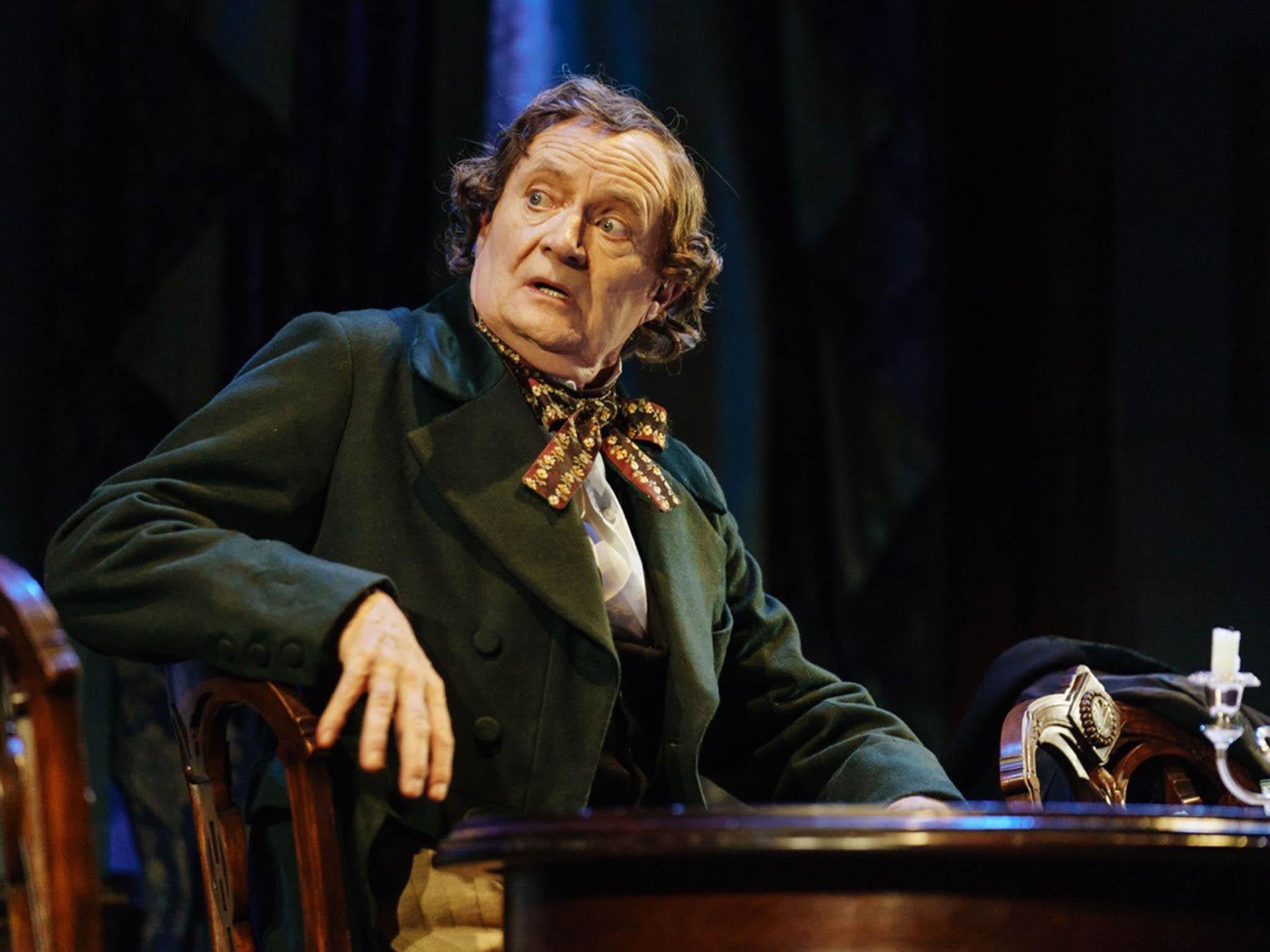A Very Very Very Dark Matter review, Bridge Theatre, London: Martin McDonagh play lacks intellectual nuance
From the man who wrote and directed ‘Three Billboards Outside Ebbing, Missouri’ comes this determinedly dark and twisted fable that fails to live up to expectations

Your support helps us to tell the story
From reproductive rights to climate change to Big Tech, The Independent is on the ground when the story is developing. Whether it's investigating the financials of Elon Musk's pro-Trump PAC or producing our latest documentary, 'The A Word', which shines a light on the American women fighting for reproductive rights, we know how important it is to parse out the facts from the messaging.
At such a critical moment in US history, we need reporters on the ground. Your donation allows us to keep sending journalists to speak to both sides of the story.
The Independent is trusted by Americans across the entire political spectrum. And unlike many other quality news outlets, we choose not to lock Americans out of our reporting and analysis with paywalls. We believe quality journalism should be available to everyone, paid for by those who can afford it.
Your support makes all the difference.Martin McDonagh is a very very very hot property at the moment. Last January, his movie Three Billboards Outside Ebbing, Missouri picked up Golden Globe awards for Best Motion Picture and Best Screenplay and was nominated for seven Oscars. In the summer, Poldark heartthrob Aidan Turner pulled the crowds into a blackly uproarious revival of The Lieutenant of Inishmore, McDonagh’s savagely funny farce about the brutal sentimentality in Irish terrorism. No wonder, then, that this latest piece – his first stage play since Hangmen in 2015 – has been so keenly anticipated. I wish I could say that it meets expectations but to my mind this determinedly dark and twisted fable is sadly lacking in emotional and intellectual nuance.
The piece is set in 19th-century Copenhagen and focuses on the Danish fairy-tale author Hans Christian Andersen. The strange, troubled personal history of this figure has long been recognised: the pathological narcissism and chronic phobias (he always travelled with a nine-foot length rope for fear of being caught in a fire): the unconsummated sexual obsessions with men and women; the desperate craving for approval of this son of an uneducated washerwoman. Enough skeletons in the cupboard to be going on with? You might have thought so, but McDonagh ups the ante. Jim Broadbent vividly portrays Andersen as an egocentric clod and clumsily blatant sucker-up. We listen to him falter over the difficult words (as though they are new to him) when he gives the first reading of The Little Mermaid at an open-air party for children and their parents.
McDonagh’s fantastical twist is that the true author of the tales is a pygmy woman from the Congo (played with fierce brilliance by Johnetta Eula’Mae Ackles) whom he keeps imprisoned in a three-foot-by-three-foot box. This is suspended from the ceiling of his townhouse attic which Anna Fleischle’s excellent design reveals as a warped, magical throng of dangling marionettes, caught in the eerie, seductive shadowiness of Philip Gladwell’s imaginative lighting. Marjory lost all her family when the Belgians, avid to plunder her country for rubber, killed millions of the people. Andersen has cut off one of her feet and made her a little crutch “You’re like a tinier Tiny Tim. But African and not as funny.”
If this bizarre double-act is meant to satirise the casual racism of Europe’s colonial exploitation of Africa, I have to say that the politically incorrect comedy of it struck me as bit self-indulgent. I wasn’t that fond of McDonagh’s play The Pillowman (2003) about a writer in a totalitarian state who is arrested when the fate of the persecuted children in his stories seems to be inspiring a spate of copycat killings. But it says a lot more about the vexed relationship between art and the world than this one does. Matthew Dunster directs the packed, sometimes baffling 90 minutes with flair. It’s all go, that’s for sure. Two blood-soaked Belgians time-travel to Copenhagen to kill Marjory and so stop her from averting an atrocity that is waiting to happen in the future. Andersen gets it into his head that fellow-writer Charles Dickens (a funny, furious and foul-mouthed Phil Daniels) may have abducted Marjory’s sister and have his own pygmy-in-a-cupboard as “co-writer”.
Sebastian Barry once wrote a sensitive, witty piece about Andersen’s (real-life) visit to the Dickens household, intolerably extended to five weeks at a time when Dickens was arranging to break off relations with his wife, Catherine. There’s a marked absence of subtlety here (even the children bawl obscenities at their guest). It’s amusing that Catherine always knew about her husband’s little helper: “Who else has been writing all this stuff while you’ve been f***ing everything that moves?” she asks in a rare feminist flurry. The anachronistic crudity of the language comes to sound reflex, rather than edgy. And it’s never properly conceded that Andersen had anything psychologically invested in his tales; his personal compulsions (in The Little Match Girl, The Shadow, The Red Shoes, etc) give rise to enduring symbols of the human condition. Robert Lepage’s one-man show about him went some way towards fleshing this out. I’m sure that McDonagh also respects Andersen’s talent but the introduction of the exploited-ghost-writer trope diminishes our sense of his complexity.
On until 6 January; bridgetheatre.co.uk
Join our commenting forum
Join thought-provoking conversations, follow other Independent readers and see their replies
Comments